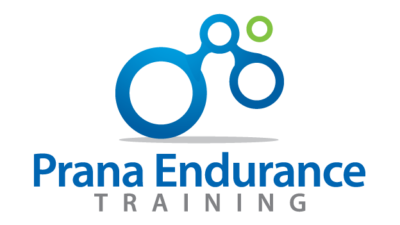Staying Fit in the Off-Season
January, middle of the off-season for most of us and now that the holidays are over, it’s the point where you get the urge to jump back into structured training. Before you do, let’s take a moment to remind ourselves about the importance of the off-season and how we can use the remaining time to our advantage.
As subscribers to this newsletter you all know how much I value recovery. So, I will focus this article on how to use the remainder of the off-season to kick-start the upcoming training year. I will also provide some guidance on a training routine to make the most of your downtime. Those athletes who have worked with me in the past can attest to the benefits of my off-season training and have the race results to prove it. They understand that their training does not stop at their goal race. In order to keep growing as an athlete, following an off-season program is instrumental to real growth. Off-season training is one of those things you must do if you want to continue to see progress year after year.
Yes, the off-season is a time to rest, to allow the body and mind to recharge after a demanding training cycle. However, it does not mean you will not be doing any training. Rather it's ideal to have a less structure plan for a few months. This plan is developed by considering several factors such as, recent race performance, injuries and future goals. In order to maintain fitness without compromising the recovery period, athlete training volume will be reduced and cross-training/sport specific strength training needs to be incorporated. This not only fortifies any imbalance an athlete may have, but also mitigate any potential injuries.
I firmly believe that for most athletes the off-season is where the greatest improvements in fitness and technique can be gained; but only if the correct approach is taken. What you do and don’t do during this phase of your training will be the catalyst to an amazing year of racing. Keeping in mind that each athlete's plan should be individually tailored and focused on improving any weaknesses an individual may have. The ideal off-season plan is composed of two phases. First, a three to four week “Progressive Recovery Phase”. This phase will be focused on post race recovery and maintenance. This is the most important phase of your cycle as without proper recovery the potential for gains in performance are minimal and the potential for injuries increase. The second phase of your off-season is the “Foundational Building Phase”, lasting four to six weeks. In this phase we will start to focus on cross training, fat burning, and high-intensity interval work. It is during this phase that you will start working with your coach on testing your current state of fitness, baselining and setting attainable goals for the season.
Below is a sample week of each phase for a seasoned runner who is looking to improve their running efficiency:
Progressive Recovery Phase
This phase is about four weeks - Focus on: Recovery, strength training, hip mobility and flexibility.
Example Week 2:
- Mon: Easy jog - transition to easy runs - 30 min.
- Tue: Cross-train, cycling, pool jogging, yoga, rowing - core strength work - 45 min.
- Wed: Easy run + Pick-ups - 45 min.
- Thu: Cross-train, cycling, pool jogging, yoga, rowing - core strength work - 60 min.
- Fri: Rest day / Brisk walking - 30 min.
- Sat: Easy run - 60 - 90 min.
- Sun: Easy trail run - 45 min.
Foundational Building Phase
This phase is about six weeks - Focus on: Cross training, fat burning, high-intensity intervals, endurance runs, and baseline testing to transition into a customized training plan.
Example Week 3:
- Mon: Easy Run + Strides + Post workout strength conditioning
- Tue: Speed/Track work, Form drills + Post run dynamic sequence
- Wed: Cross-train, cycling, pool jogging, yoga, + Core strength work
- Thu: Speed-play, Endurance run, drills + Post run strength/flexibility training
- Fri: Rest day / Brisk walking - 30 min. + Strength conditioning rope stretching
- Sat: Moderate progressive endurance run - Pacing on feel
- Sun: Trail run - 45 min.
Remember to keep the off-season training focused on building a stronger more efficient you. This is the time to start a new strength routine, improving your range of motion, and work on any potential performance limiters.

